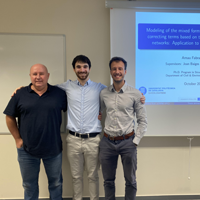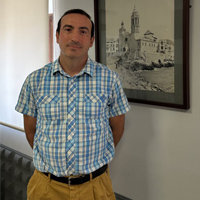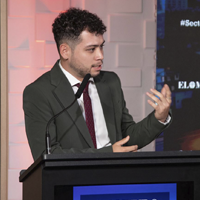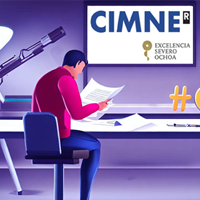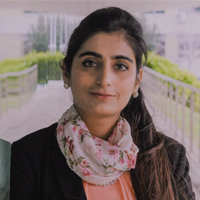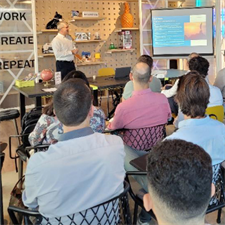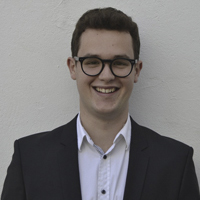news
Eric Neiva has defended his PhD thesis "Large-scale tree-based unfitted finite elements for metal additive manufacturing"
On 7th October 2020 Eric Neiva successfully defended his PhD Thesis titled "Large-scale tree-based unfitted finite elements for metal additive manufacturing" in the framework of Civil Engineering Programme. The thesis, that was carried out at the Technical University of Catalonia (UPC) under the supervision of Profs. Michele Chiumenti and Santiago Badia, was qualified as Excellent cum Laude.
The PhD Exam Committee was formed by Professors Michel Bellet (Mines ParisTech), Joan Baiges (Technical University of Catalonia) and André Massing (Norwegian University of Science and Technology).
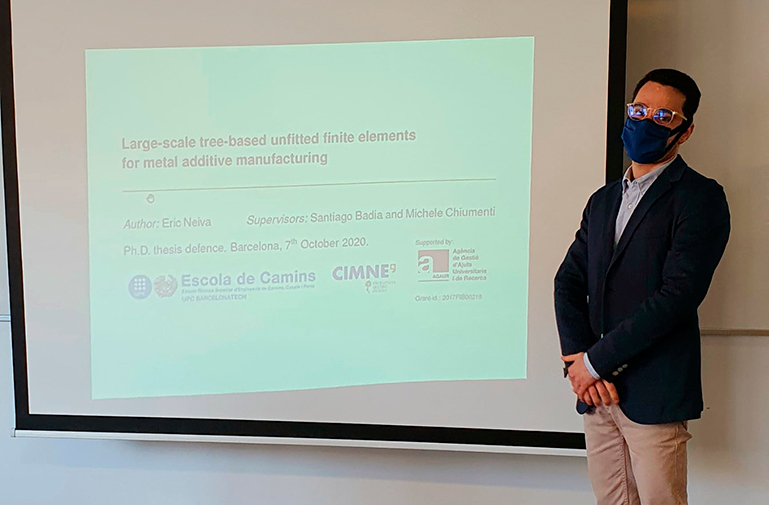
Eric Neiva during his PhD defense presentation at Technical University of Catalonia
About the thesis
This thesis addresses large-scale numerical simulations of partial differential equations posed on evolving geometries. Our target application is the simulation of metal additive manufacturing (AM, aka 3D printing) with powder-bed fusion methods (PBF), such as Selective Laser Melting (SLM). Metal AM processes are characterised by multiple scales in space and time and multiple complex physics, that occur in intricate 3D growing-in-time geometries. State-of-the-art numerical techniques cannot efficiently deal with both features.
The main goal of this Thesis is to design a a novel highly-scalable numerical framework with multi-resolution capability in arbitrarily complex evolving geometries. To this end, we bring together three computational tools: (1) parallel mesh generation and adaptation with forest-of-trees meshes, (2) robust unfitted finite element (FE) methods and (3) parallel FE modelling of the geometry evolution in time. Our numerical research is driven by several limitations and open questions in the three aforementioned areas, which are vital to achieve our main objective. All our developments are deployed with high-end distributed-memory implementations in the large-scale open-source software project FEMPAR. In considering our target application, temporal and spatial model reduction strategies for thermal finite element models are investigated, in two joint collaborations with the Monash Centre for Additive Manufacturing in Melbourne, Australia.
The resulting framework is capable of mitigating a major performance bottleneck in large-scale simulations of metal AM processes by PBF: scalable adaptive (re)meshing in arbitrarily complex geometries that grow in time. Hence, it contributes to accelerate the understanding of the process-to-performance link and digital product design and certification in metal AM, two milestones that are crucial to exploit the technology for mass-production.




